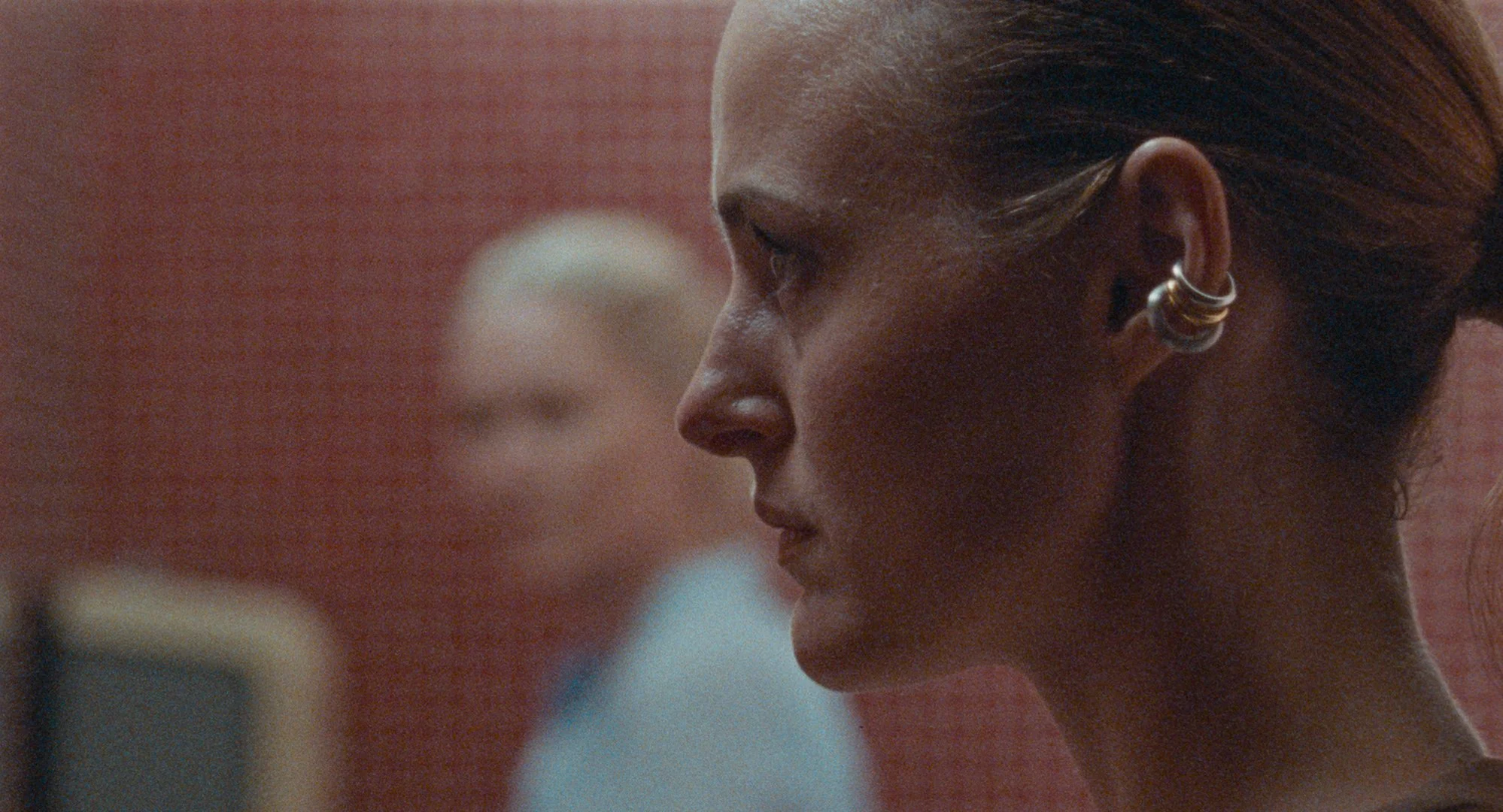Original-Cin Q&A: Armand Star Renate Reinsve on the Importance of Laughter in Drama
By Bonnie Laufer
Norwegian actress Renate Reinsve is probably best known for a stunning performance in director Joachim Trier’s 2021 drama The Worst Person in the World, for which she received the Best Actress nod at Cannes.
She now delivers yet another heartbreaking and intense role in Armand. In the film, Reinsve plays Elisabeth, an actress and single mother up against another set of parents over some serious allegations involving their sons.
Armand is written and directed by Halfdan Ullmann Tøndel, the grandson of Swedish cinema legends Liv Ullmann and Ingmar Bergman. Bonnie Laufer spoke to Reinsve about her performance in Armand, which is now playing at Toronto’s TIFF Lightbox.
Original-Cin: Being a mom of two boys, this one stuck with me more than any movie I've seen in a long time. This seems like more of a challenge than anything you've done before. What struck you about this storyline and this woman when you first read this script?
RENATE REINSVE: Actually, I didn't get the script in the conventional way, because me and Halfdan, the director, had done a short movie a few years ago before this. So, he wrote this role from what he had seen me do in the theater, where I am a lot more expressive. I'm very comfortable with expressing a character's inner life through dancing or through something very expressive so he wanted to incorporate that element. It took a long time to get money for this movie. Every time he rewrote the script and I got a new version, she was in more pain and her situation was more intense as she was even more hyper-vigilant.
O-C: How did you find a way to relate to Elisabeth? You are not a mother and what she goes through, what the school puts her through, is unimaginable for any parent.
RR: I think I just tried to be as honest as possible. If you're in a situation where you lose control, most of the time you want to find a way to minimize the conflict level and try to contain yourself. I think it's just so important to her, and she has no idea how to deal with these allegations. I don't think she's been in a fight in her life where she has to protect what she loves most, and all her bad sides come out. I think we all have it in us as people where we don't really know it's impossible to know exactly when you're in that space, you don't really know how to control yourself. She doesn't know when she's being manipulative and when she is going into those spaces as a person and trying to be honest with those spaces is really challenging.
O-C: You talk about losing control. There’s a scene where you're sitting in the classroom discussing this very serious issue about your son and you burst out laughing, which goes on for about five minutes. It’s completely relatable. Sometimes we're at a funeral, or somewhere where we really should not be laughing, it happens as a release. You cannot control yourself in that scene. How did you get through that?
RR: I absolutely did not think that I was going to make it. I came in that morning, and me and Halfdan had talked briefly about it in the rehearsals because you can't really rehearse that scene. I came in on the day of the shoot and thought, ‘I won't get to that space.’ But I think all the spaces where Elisabeth goes are difficult, she is so complex and out of her comfort zone.
As an actor, a human being, and a character, you want to always find comfort, and you want to stay in control. It's very hard for an actor to lose control. It took the whole day to shoot that scene, because it’s kind of the turning point of the movie, and you need that scene. It really did take a lot out of me. I went a tiny bit crazy but, in the end, it totally worked.
O-C: You mention having worked with director Halfdan previously. What was your collaboration like this time and how much did he leave in your lap to develop Elizabeth?
RR: We have a very strong collaboration. You have chemistry with some people and ours goes really deep. We have an understanding of people that we can't really put into words. On set, we bounced back and forth, almost with no words, just excitement trying to discover [the character] and find ways to develop her during the shoot. We just had a lot of fun. We were laughing a lot, even though there was a lot of pain for my character. It truly helped us get through this difficult shoot.



